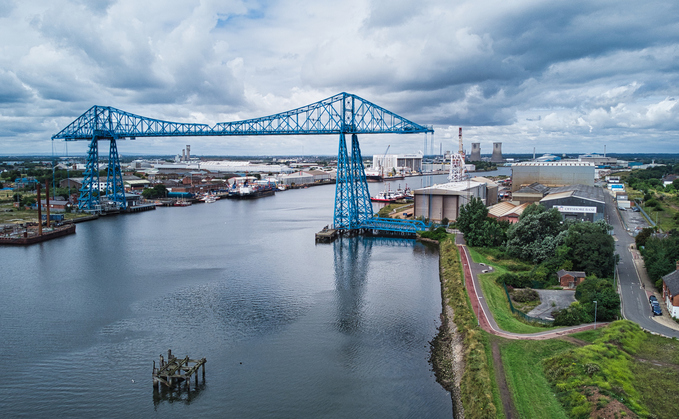
Middlesborough, Teesside | Credit: iStock
Start-up picks North East as location for its plant as Business Secretary travels to region to visit site of planned lithium refinery plant
UK clean technology start-up Altilium has announced plans to build the "largest planned recycling facility" in the UK for end-of-life electric vehicle (EV) batteries at a site on Teesside.
The company, which has clinched £3m in government innovation funding, said it would scale up its proprietary recycling technology in order to meet the expected exponential demand for critical metals needed to transition to net zero.
It said Teesside was the "ideal location" for the plant, because it is a freeport low-tax customs zone with a highly-skilled local workforce, local government support, and a rich heritage in the field of chemical processing.
"We are excited to announce Teesside as the preferred location for Altilium Metal's first UK recycling plant, as we scale up our technology to help meet the growing demand for critical metals and move towards a circular economy for the battery value chain," said Kamran Mahdavi, Altilium Metals. "The significant volume of end-of-life batteries and scrap from giga-factories expected in the UK requires mega-scale recycling solutions and we look forward to demonstrating the process at scale here on Teesside."
Tees Valley Mayor Ben Houchen noted that Altilium was one of a number of companies in the EV supply chain that had chosen to set up shop on Teesside.
"We're seeing a lot of activity in EV innovation here, with other plans for lithium plants for battery production moving on swiftly," he said. "This latest announcement will help cement our expertise and status as a fantastic place to do business in the sector, helping to attract more ground breaking firms in the cleaner, safer and healthier industries of tomorrow, while creating hundreds more good-quality, well-paid jobs."
Altiluim said the project would create between 100 and 200 jobs by 2025 and would generate hundreds more during the 18-month construction phase for the project.
It said a decision for the final location for the Teesside plant would be made in early 2023.
Meanwhile, Business Secretary Grant Shapps is in the north east today to visit the site of the UK's first large-scale lithium refinery plant, near Middlesborough.
The project, which clinched a £600,000 grant from the government in January of this year, is aiming to produce battery grade materials that can be used in EVs, renewable energy and consumer technology.
The company behind the scheme, Green Lithium, claims it will generate more than 1,000 jobs in construction and 250 permanent high-skill jobs for local people.
"We're backing companies, like Green Lithium here in Teesside, to grow the new, green industries across the UK, sparking jobs and growth for decades to come," Shapps said. "This is levelling up in action."
The Business Secretary said it was critical that projects that could protect UK electric vehicle supply chains from geopolitical risk and disruption.
"It is also allowing us to move quickly to secure our supply chains of critical minerals, as we know that geopolitical threats and global events beyond our control can severely impact the supply of key components that could delay the rollout of electric vehicles in the UK," he said.
The government said 89 per cent of lithium processing currently takes place in East Asia and there are currently no lithium refineries in Europe.
The news comes just days after the start-up behind the UK's largest gigafactory project - Britishvolt - was saved from collapse after mining giant, and existing shareholder, Glencore reportedly stepped in to provide emergency funding for the cash-strapped company.
The company had reportedly been prepared to appoint administrators after the government refused to advance it £30m in grant funding it had promised to Britishvolt once construction of the gigafactory in Northumberland reached certain milestones.









